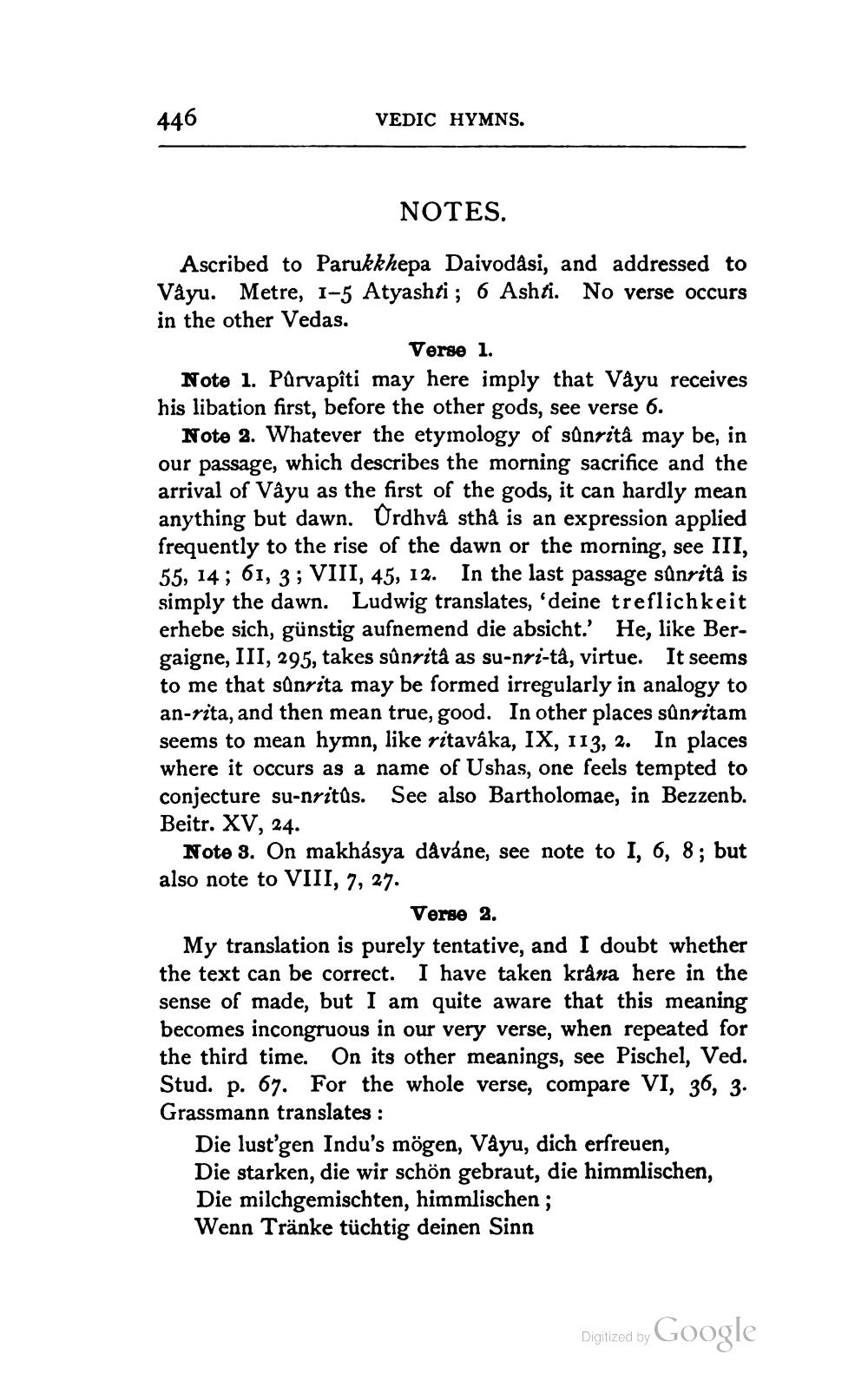________________
446
VEDIC HYMNS.
NOTES.
Ascribed to Parukkhepa Daivodási, and addressed to Våyu. Metre, 1-5 Atyashti ; 6 Ashti. No verse occurs in the other Vedas.
Verse 1. Note 1. Pârvapîti may here imply that Vayu receives his libation first, before the other gods, see verse 6.
Note 2. Whatever the etymology of sûnrità may be, in our passage, which describes the morning sacrifice and the arrival of Vayu as the first of the gods, it can hardly mean anything but dawn. Urdhvâ stha is an expression applied frequently to the rise of the dawn or the morning, see III, 55, 14; 61, 3 ; VIII, 45, 12. In the last passage sûnrità is simply the dawn. Ludwig translates, 'deine treflichkeit erhebe sich, günstig aufnemend die absicht.' He, like Bergaigne, III, 295, takes sûnritâ as su-nri-tâ, virtue. It seems to me that sûnrita may be formed irregularly in analogy to an-rita, and then mean true, good. In other places sûnritam seems to mean hymn, like ritavaka, IX, 113, 2. In places where it occurs as a name of Ushas, one feels tempted to conjecture su-nritus. See also Bartholomae, in Bezzenb. Beitr. XV, 24.
Note 3. On makhásya dáváne, see note to I, 6, 8; but also note to VIII, 7, 27.
Verse 2. My translation is purely tentative, and I doubt whether the text can be correct. I have taken kråna here in the sense of made, but I am quite aware that this meaning becomes incongruous in our very verse, when repeated for the third time. On its other meanings, see Pischel, Ved. Stud. p. 67. For the whole verse, compare VI, 36, 3. Grassmann translates :
Die lust'gen Indu's mögen, Väyu, dich erfreuen, Die starken, die wir schön gebraut, die himmlischen, Die milchgemischten, himmlischen; Wenn Tränke tüchtig deinen Sinn
Digitized by
Digized by Google




